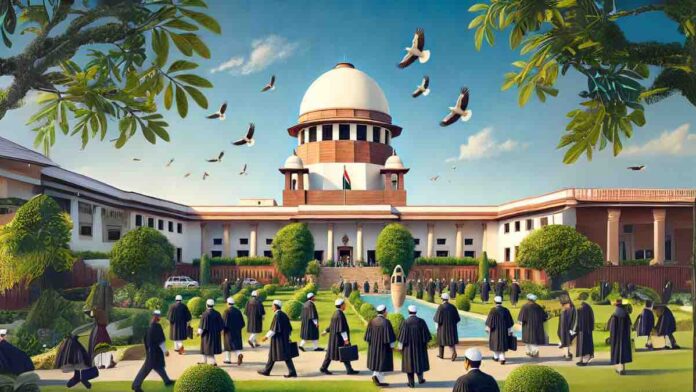In a recent ruling, the Supreme Court of India directed all state governments to ensure that police verification reports for candidates appointed to government services are completed within six months of their appointment. The directive came as part of the Court’s ruling in Civil Appeal No. 13919 of 2024, involving Basudev Dutta, whose termination from
To Read More Please Subscribe to VIP Membership for Unlimited Access to All the Articles, Download Available Copies of Judgments/Order, Acess to Central/State Bare Acts, Advertisement Free Content, Access to More than 4000 Legal Drafts( Readymade Editable Formats of Suits, Petitions, Writs, Legal Notices, Divorce Petitions, 138 Notices, Bail Applications etc.) in Hindi and English.




